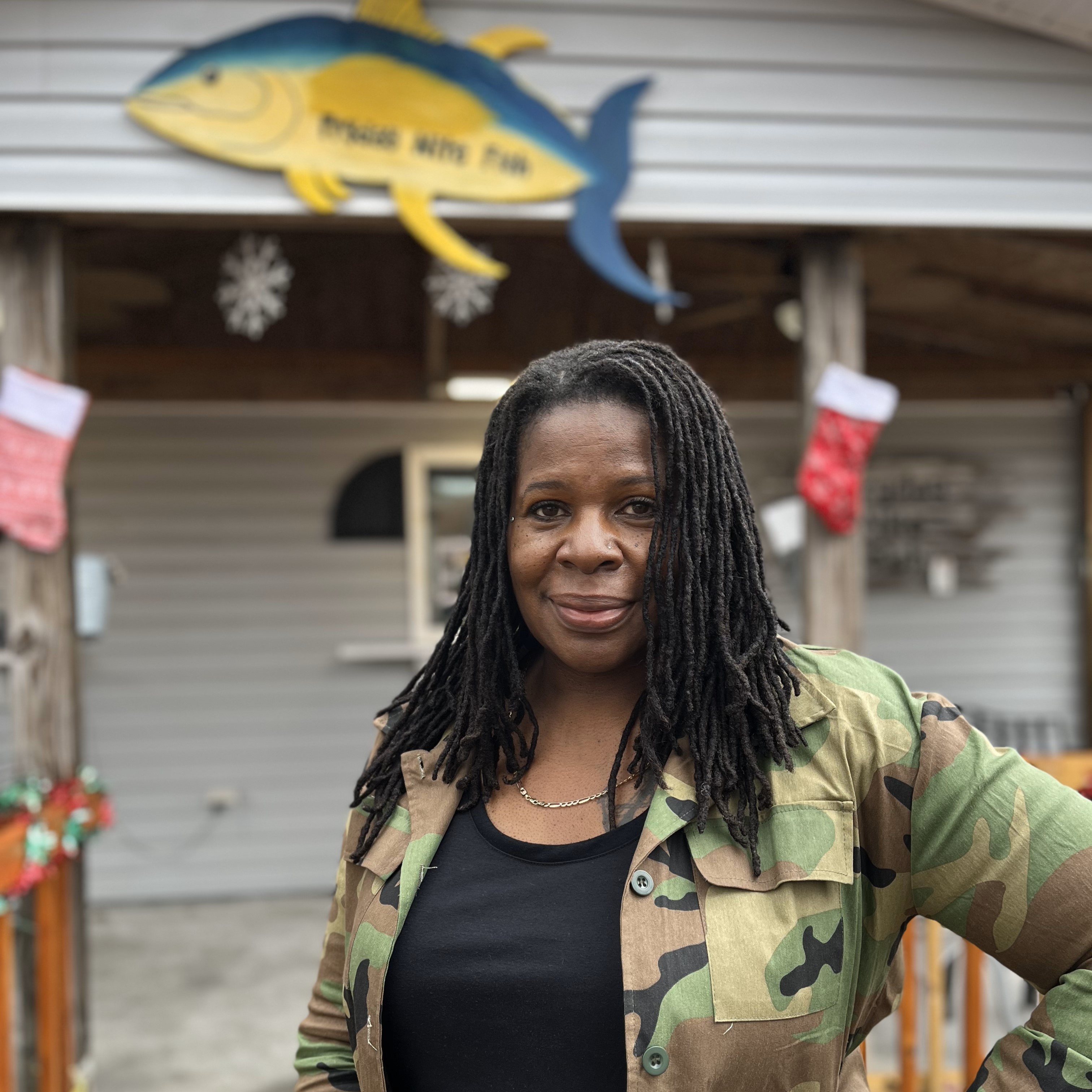Act now to prevent the collapse of the NC shrimp industry
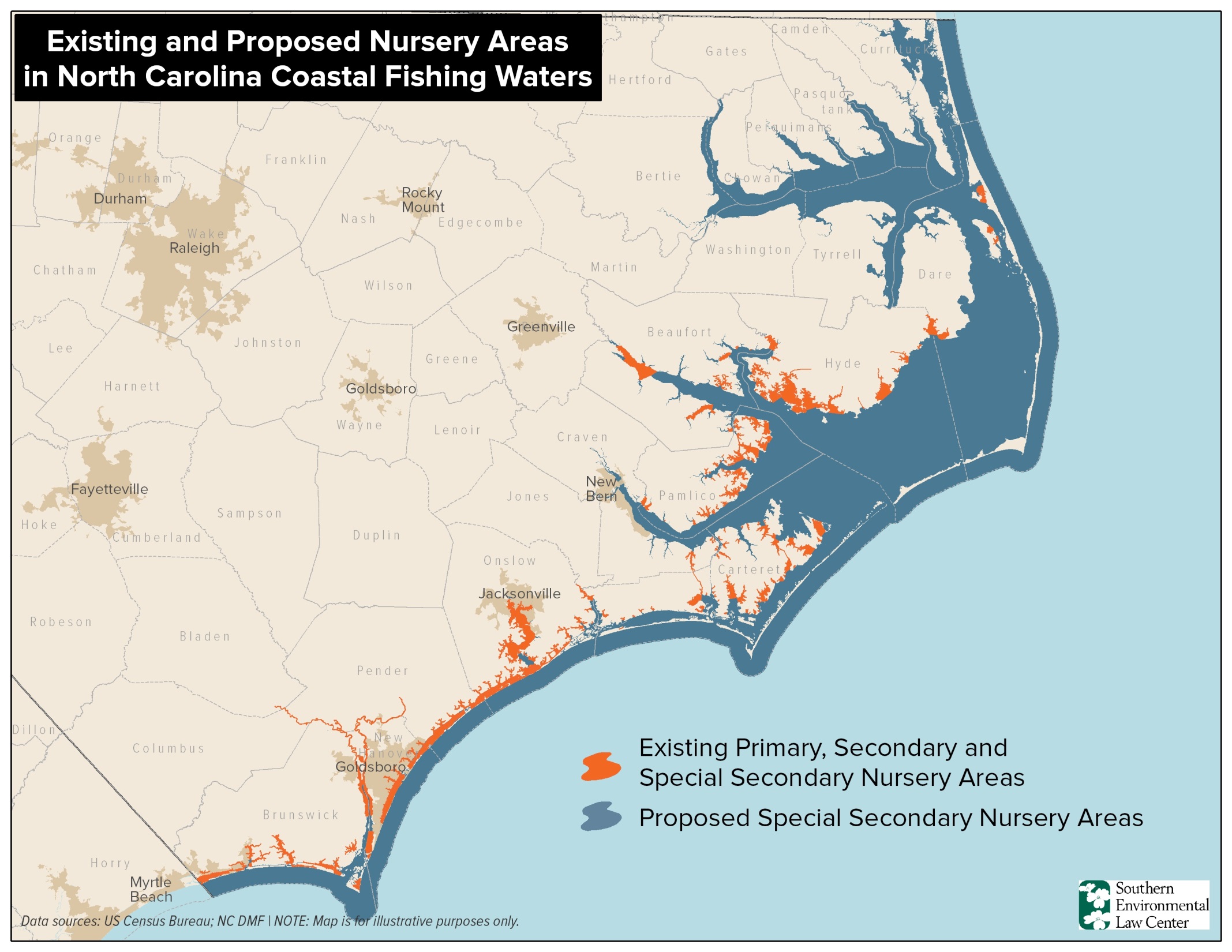
Video: Catch Math: Shrimp Subtraction
Update: March 28, 2017: NC Senate Bill was filed today regarding the rule making petition.
Update: On Thursday, Feb. 16, 2017, the NCMFC voted to accept, in its entirety, the petition for rulemaking in a vote of 5 to 3 with 1 abstention. Now the rulemaking cycle begins, which could minimally take 18 to 24 months. The NCDMF must first draft a fiscal analysis of these proposed rules. If economic impact is determined to be greater than $1 million, which it most certainly will, the commission will be required to develop two alternative rules (along with economic impact data for each alternative) pursuant to the regulatory reform act. However, because this is a petition for rulemaking the NCMFC cannot select either of the alternatives...only study them. The rules would then go out for notice of text and hearing, at which time the public will be once again invited to comment. The NC Rules Review Commission would then hear the rules, and if the RRC approves, there will be a 24-hour window to submit ten letters of objection pushing the issue into the legislature. The final step that would have to take place prior to any implementation would be a revision of any affected fisheries management plans since rules cannot be implemented that contradict an FMP. Those interested in the matter are encouraged to remain engaged and informed for what looks to be a lengthy time-frame. 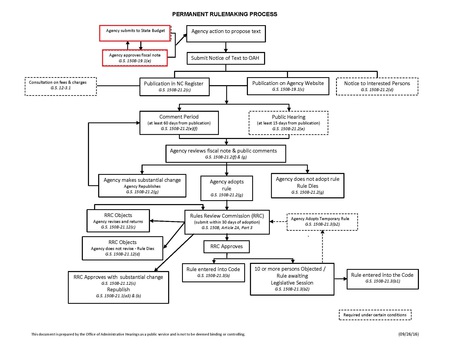
Previous Update: More than 1,000 people attended the public hearing in New Bern on January 17, with the vast majority showing support for the progressive management plan already in place for the NC shrimp fishery. At the end of a very long day that went several hours past the allotted hearing time, all five advisory committees voted overwhelmingly to recommend that the NC Marine Fisheries Commission deny the NCWF petition. Keep in mind, that the NCMFC is not obligated to heed the committees' unanimous recommendation. Therefore, NC seafood consumers are encouraged to remain engaged in the process through the NCMFC meeting on Feb. 15 and 16 in Wilmington.
North Carolina shrimp are considered a public trust resource for its citizens, belonging to fishermen, consumers, and others. The shrimp fishery is one of North Carolina’s most valuable commercial fisheries and has been so for decades. The shrimp fishery occurs from near the Manteo, NC area all the way to the South Carolina state line, and involves numerous coastal communities. Our shrimp are managed for sustainability by the North Carolina Marine Fisheries Commission (MFC) and the North Carolina Division of Marine Fisheries (DMF) and are currently not overfished or being fished at unsustainable rates. NC Catch wants to alert consumers, restaurants and other interested parties that a petition has been submitted to the MFC that would greatly impact the North Carolina shrimp fishery and would restrict access to this public trust resource.
The petition asks the MFC to prohibit shrimp trawling in all the state’s estuarine waters and near-shore ocean waters unless opened by the DMF. Waters could not be opened at all between May 15 and August 16.
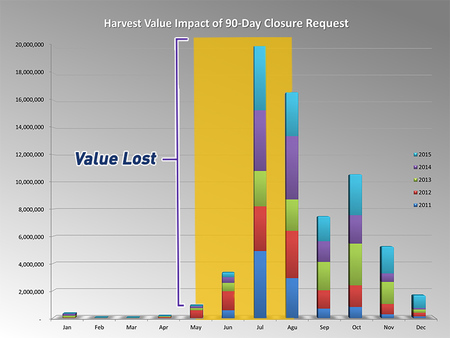
Note: Annual monthly shrimp landing values, 2011-2015, were provided by NC Division of Marine Fisheries; Yellow area represents the 90-day mandatory closure dates requested by the current petition before the NC Marine Fisheries Commission.
The petition also asks that if those waters are opened, that trawling be allowed for only three days per week (currently allowed five days/week in internal waters and seven days/week in ocean waters), that the size of trawls be substantially restricted from what they are now, and that the areas not be opened until the shrimp reach a size of 60 per pound (no current size limit). North Carolina is home to the largest estuary (Albemarle-Pamlico Sounds) in any one state and has over 2.3 million acres of estuarine waters. Approximately half of the waters in our estuaries are already closed to trawling due to being nursery areas for fish, critical habitat for fish (such as grass beds along eastern Pamlico Sound), or because shrimp are not common in those areas (upper sections of Pamlico/Neuse Rivers, Albemarle Sounds, etc). North Carolina is one of the few states in the USA that has commercial fisheries for pink (spotted shrimp-spring fishery), brown (summer shrimp-July into fall fishery), and white shrimp (green tails-late summer fall fishery). Almost all of the shrimp sold in North Carolina are harvested by trawls. Not having a shrimp season until after August 16 would eliminate the pink shrimp fishery and also substantially affect the brown shrimp fishery.
North Carolina has been a leader in protecting critical fish habitat and reducing fish bycatch. Our state was the first state to have formally classified nursery areas, which prohibits certain fishing gears, protects them from habitat-altering activities and provides stronger water quality protection. North Carolina was the first state to require finfish excluders in shrimp trawls in 1992 and the first state to require two finfish excluders in 2016. These excluders allow significant numbers of small fish to escape alive from shrimp trawls. North Carolina also requires sea turtle excluder devices, which also exclude small fish.
Read about the current 3-year bycatch reduction study and its initial successes
In 1997 the NC General Assembly passed the Fisheries Reform Act (FRA), which transformed fisheries conservation in our state. The new components of the FRA became models for other states to follow. One of the cornerstones of the FRA was to require fishery management plans (FMP) for all of North Carolina’s significant commercial and recreational species. A FMP was completed for North Carolina shrimp in 2006 and an FMP amendment was finalized in 2015. Both these documents addressed the major issues of shrimp conservation, bycatch, habitat protections, and social/economic factors and were developed over two years of discussions with scientific/fishermen advisors during public meetings. The issues raised in the petition were discussed during the preparation of these FMP’s and decisions were made on the best available science and public input.
Without access to NC shrimp, where will your shrimp come from?
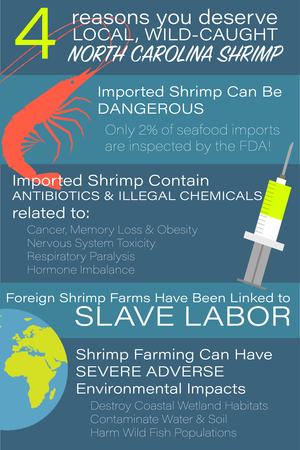
The MFC will vote on the petition at its February 15-16, 2017 business meeting in Wilmington, NC at the Hilton Riverside. Public input at a MFC business meeting is usually allowed during specified times.
Comments may be sent to:
Sammy Corbett, MFC Chairman
P.O. Box 769
Morehead City, NC 28557
Contact Governor Cooper's office at 919-814-2000
Concerns may also be expressed to your local and state elected representatives.



